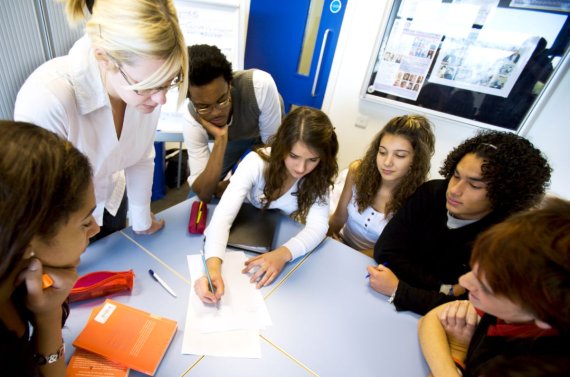Foto: ThinkBuzan.com
The Wageningen start-up Solynta has asked students for help. A couple of years ago this company devised a new potato breeding method, working with seeds instead of whole potatoes. ‘We are developing the technology for the Western world, but I think that this will also work perfectly for developing countries’, says Hein Kruyt, Managing Director of Solynta. Seeds do not get rotten, unlike potatoes, and through cross-breeding it is easier and quicker to develop new varieties that fit the local circumstances. ‘Additionally, potatoes require less land and water compared to grains. And above all, they are healthier’, Kruyt states. Therefore, he would regard it as ‘almost felonious’ not to make the seeds available for farmers in developing countries, where people lack food and nutrition.
But, how to go about it? Solynta can deliver seeds for an affordable price, but how can it be sure that the cheap seeds are not bought by the wrong people, who are then re-selling them in Europe or the US under the market price, thereby becoming direct competitors of Solynta? ‘This also happened with medicine’, says Kruyt.
Kruyt already had this question in mind when Guido Mathee, from the Food Valley NL foundation, asked him if he had a good question to ask students, because he wanted to organise a “hackaton”. Mathee is responsible for connecting students to SMEs. He believes that the brainpower of students can help local business owners in the food sector.
Three educational institutes took interest and wanted to put students on the case. During the “hackaton”, on the 9th of September in Impulse on Wageningen Campus, students from Wageningen University, HAS Den Bosch and Van Hall Larenstein Velp will devote their attention to the problem. There are also about 15 experts present, whom the students can consult with questions about topics such as legislation, infrastructure, climate, soil conditions and crop yields.
For many of these students it is not just one day of brainstorming. ‘Two groups of six master students that are participating in the Academic Consultancy Training course are participating’, says Ilse Markensteijn from the Education project services of Wageningen University. They will spend eight weeks to come up with a smart business model for Solynta. Similarly, the 14 students of HAS Den Bosch and the 8 VHL-students who are participating in the hackaton are doing this as part of an existing course. The students with the best plans are allowed to present them in October during the Food Valley Expo in Orion.
If the hackathon approach works, then Wageningen University might use this cooperation form more often to take on questions from SMEs, says Markensteijn. ‘It takes quite a bit of time to organise such an event, but it also yields a lot of energy. You see that experts and students sign up to participate.’ Other than the students that are participating as part of their education courses, there are also many students that have spontaneously signed up to take part.
Also read
National icon
A new potato, faster

